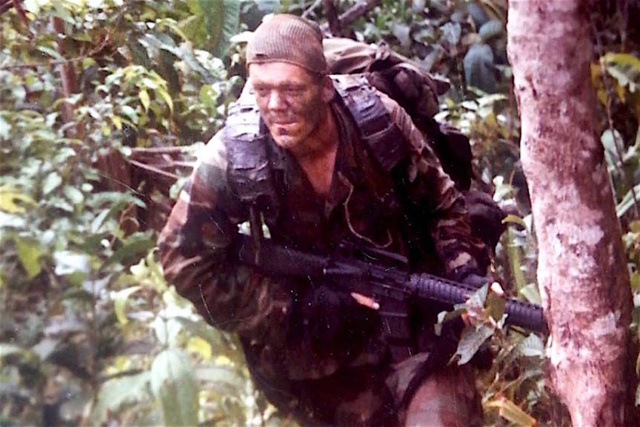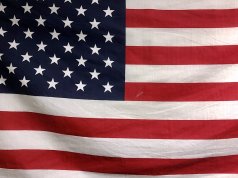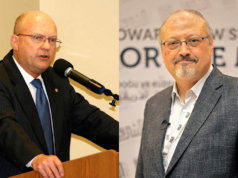

Kill Kill, Hate Hate
Strangle Mangle Mutilate
Death From Above Airborne
Die!
These were the first words I was asked to memorize as a recruit in the U.S. Army. If you are a veteran, you get it. I got it, and I still get it, for new recruits and active-duty soldiers. Still, as veterans, we should feel obligated to move beyond such bombastic slogans, dig deeper for the truth and do more than just our 22 push-ups a day. Let’s examine how and why our military is used. Let’s take a hard, critical look at the lasting and far-reaching effects of America’s foreign policies.
I’m going to use a few bold statements here that might make you spit out your American Beer when you read them. All I ask is for you to consider these statements carefully and read the linked articles to perceive the bigger picture I’m trying to paint. Share and like on social media if you want, but certainly discuss.
Eisenhower’s warning from 1961
“In the councils of government, we must guard against the acquisition of unwarranted influence, whether sought or unsought, by the military industrial complex. The potential for the disastrous rise of misplaced power exists and will persist.”
— President Dwight D. Eisenhower, 1961
Viewed in hindsight of the first Gulf War, the warning President Eisenhower, a Republican and the last general officer to be president, gave us in 1961 seems especially prophetic. It appears we traded the Cold War for a Hot War, and no one stands to gain more than the military-industrial complex. (By the way, I highly recommend reading Eisenhower’s entire speech.)
Vietnam as the catalyst for blind support
America entered into Vietnam just a few short years after Eisenhower’s statement. Vietnam was deeply dividing to this county, and the hate leveled against our (mostly drafted) returning troops was deplorable.
But since the first Gulf War, and even more so since 9/11, there seems to be some kind of guilt-induced acceptance of anything the military industrial complex grossly exploits for the type of influence about which President Eisenhower warned us.
Flag displays, the use of the term “hero” and bumper stickers bearing the phrase “Support the Troops” have become so common they seem like cheap marketing slogans at times. This jingoism dangerously erodes examination of the true sacrifices that have been made and what is really at stake when we deploy our military forces.
Lock up Hillary? Let’s talk about Dick Cheney
It is no secret how misinformed the American public was going into the Iraq War. We were rushed into Iraq, reeling as a nation from the events of 9/11. In turn, there arose no better example of how politicians will use fear and patriotism to serve their own ends than former Vice President Dick Cheney.
Mr. Cheney left Halliburton to become vice president and, subsequently, has made at least $40 million (by conservative estimates) from Halliburton and his related stock options. (Do not mistake this connection as tacit support of Hillary Clinton; it certainly is not my intent.)
Regardless of what you think of Mrs. Clinton, the extent of Mr. Cheney’s conflict of interest is pretty staggering. As of 2013, private contractors had billed the U.S. government more than $139 billion for work in Iraq, with Halliburton subsidiary KBR coming in at $39.5 billion (28.4 percent).
Radical Islamic terrorism is a red herring
Former Oklahoma Gov. David Walters presented an excellent article here on NonDoc while I was in the process of writing this commentary. Walters goes in-depth about what the top existential threats we face as Americans are, by the numbers.
ISIS isn’t one of them yet and shouldn’t be our sole focus in electing a president. This is not to say ISIS is the JV team or that we don’t have a real threat on our hands with them. They are not, and we certainly do. I am not denying our need for a military response, either.
RELATED
How terrorism ends: A slow death from loneliness
by David Walters
Any examination of the current situation in the Middle East that doesn’t take the unnatural boundaries created by the breakup of the Ottoman Empire, the Zionist movement and oil into consideration comes across as very short-sighted. There is a whole lot to consider in the four-headed proxy war between Sunni (Saudi), Shia (Iran), the U.S. and Russia that we mostly sum up as the whole “ISIS” thing. It is incredibly complex, and our involvement probably has a lot more to do with oil and a trans-Arabian pipeline than most of us have ever realized.
But it goes way beyond ISIS, and Republicans and Democrats alike are complicit in the subterfuge. Any veteran that’s ever been to Saudi Arabia, the United Arab Emirates or Qatar certainly has seen firsthand the enormous influence oil has on our military and which conflicts we end up in around the world. (See this very informative article by Robert Kennedy, Jr. about American involvement in the Middle East.)
The impact back home
Meanwhile, roughly 18 to 22 veterans are completing suicide each day in the United States, and I feel like the words “freedom,” “patriot” and even “America” have been hijacked to distract us from the big picture of how we really got here and where we may be heading.
On a related note, I’ve had versions of the “Obama created ISIS” argument with civilians and veterans alike. When I point out that a status of forces agreement executed by the Bush administration was largely responsible for the rapid removal of our troops from Iraq, those arguments sometimes lead to fellow veterans and civilians calling me a disgrace to our military. The quagmire in the Middle East is complex, and it’s much deeper than just Obama and ISIS.
The Occupy kids are freedom fighters, too
Protest is one of the highest forms of freedom. We hear often about fighting for our freedom with regard to our military involvement in other countries. I am certainly not diminishing anyone’s military service overseas or the individual and family sacrifices that have been made. Freedom starts at home, and we often hear how someone overseas is “fighting for our freedom.”
Perhaps they are, but there are certainly people who stand to gain a lot more than others when we go overseas and fight for freedom. Call them what you will: the one percent, the oligarchy, job creators.
There is no denying that a massive redistribution of wealth has occurred in this country. Consider this: The Dow Jones was at 2,500 before the first Gulf War; it’s now at 18,500. That’s an increase of 750 percent. Three wars later, military pay has only doubled.
Although most veterans view the Occupy movement as a bunch of spoiled kids who never fought for anything, Occupy actually has a lot in common with the Sons of Liberty. Whether you like them or not, the movement was onto something.
The real threat: Reckless foreign policy
As a former Scout Team Leader in the 82nd Airborne and graduate of U.S. Army Ranger School, I feel like my “Patriot Card” is stamped pretty deep, but I have been called a traitor and un-American for simply expressing some the information listed above.
Meanwhile, veterans are contemplating and completing suicide at an alarming rate. Obviously, those aren’t veterans from Korea or WWII.
In sum, nothing has the potential to kill more Americans and cost American taxpayers more money than reckless foreign policy. The influences behind how our military is used are complex, so let’s move beyond simple slogans, symbols and 22 push-ups.
Let’s dig deeper for the truth behind our reality.
National Suicide Prevention Hotline:
1-800-273-8255
(There is no shame in seeking mental health care.)





















